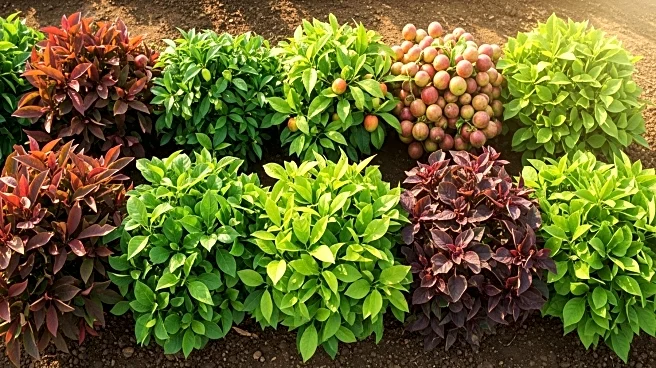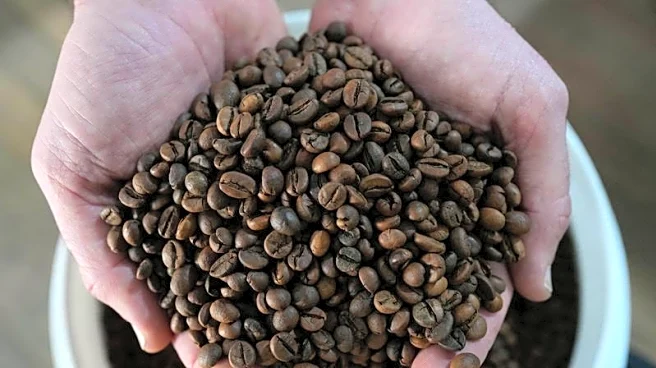What's Happening?
The Agriculture and Farmers Welfare Department, in collaboration with the Satchand Agriculture Department, organized a distribution event for fruit plants at the Anand Para Community Hall in Sabroom, Tripura. The event, held on August 26, 2025, aimed to support local farmers under the Urban Horticulture Scheme 2025. A total of 250 beneficiaries received ten betel nut seedlings, ten cardamom lemon seedlings, and ten mango seedlings each. The initiative was attended by several dignitaries, including Swapan Das, Chairman of the Agriculture and Fisheries Department of Sabroom Nagar Panchayat, and Shantana Reang from the Satchand Agriculture Department.
Why It's Important?
This initiative is significant as it supports local farmers by providing them with resources to enhance their agricultural productivity. The distribution of fruit plants is part of a broader effort to promote sustainable agriculture and improve the livelihoods of farmers in the region. By focusing on horticulture, the program aims to diversify agricultural practices and increase the economic resilience of farming communities. The involvement of local government officials underscores the importance of such initiatives in regional development and the commitment to supporting agricultural growth.
What's Next?
Following the distribution event, the Agriculture and Farmers Welfare Department is likely to monitor the progress of the beneficiaries to ensure the successful cultivation of the distributed plants. Future initiatives may include additional support measures such as training sessions for farmers on best practices in horticulture and sustainable farming techniques. The success of this program could lead to similar initiatives in other regions, further promoting agricultural development across Tripura.
Beyond the Headlines
The distribution of fruit plants not only supports economic growth but also contributes to environmental sustainability by encouraging the cultivation of diverse plant species. This initiative may also foster community engagement and cooperation among farmers, leading to a more collaborative approach to addressing agricultural challenges.











